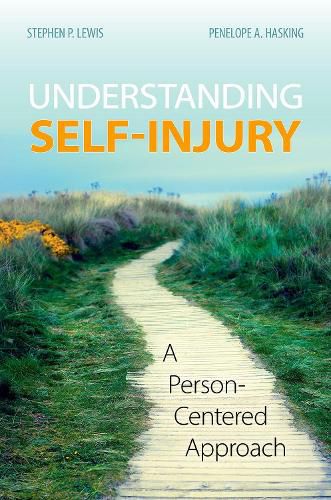Readings Newsletter
Become a Readings Member to make your shopping experience even easier.
Sign in or sign up for free!
You’re not far away from qualifying for FREE standard shipping within Australia
You’ve qualified for FREE standard shipping within Australia
The cart is loading…






Nonsuicidal self-injury (NSSI), the purposeful damaging of one's own body tissue without suicidal intent, is a common and serious mental health concern. Engagement in self-injury is associated with numerous mental health difficulties such as major depression. Of particular concern is recent evidence indicating that self-injury is a significant risk factor for suicide. Taken together, understanding self-injury and appropriately responding to people who self-injure is critical.Developing a compassionate understanding of self-injury requires not only knowledge of current research but also essential insights from individuals with lived experience. Understanding Self-injury: A Person-Centered Approach offers a significant departure from traditional texts in the field by adopting a person-centered, strengths-based approach to understanding and addressing self-injury. In addition to giving a general introduction to self-injury, this book offers practical tips for families and caregivers, schools, clinicians, and advocates who support individuals who self-injure. Importantly, priority is given to topics that individuals with lived experience of self-injury find central to their experiences, such as stigma, social media, resilience, recovery, and advocacy.This book is a must-read for anyone who interacts with or plays a supportive role in the lives of people who self-injure, including mental health professionals and students, school professionals, families, researchers, and, importantly, individuals with lived experience of self-injury.
$9.00 standard shipping within Australia
FREE standard shipping within Australia for orders over $100.00
Express & International shipping calculated at checkout
Nonsuicidal self-injury (NSSI), the purposeful damaging of one's own body tissue without suicidal intent, is a common and serious mental health concern. Engagement in self-injury is associated with numerous mental health difficulties such as major depression. Of particular concern is recent evidence indicating that self-injury is a significant risk factor for suicide. Taken together, understanding self-injury and appropriately responding to people who self-injure is critical.Developing a compassionate understanding of self-injury requires not only knowledge of current research but also essential insights from individuals with lived experience. Understanding Self-injury: A Person-Centered Approach offers a significant departure from traditional texts in the field by adopting a person-centered, strengths-based approach to understanding and addressing self-injury. In addition to giving a general introduction to self-injury, this book offers practical tips for families and caregivers, schools, clinicians, and advocates who support individuals who self-injure. Importantly, priority is given to topics that individuals with lived experience of self-injury find central to their experiences, such as stigma, social media, resilience, recovery, and advocacy.This book is a must-read for anyone who interacts with or plays a supportive role in the lives of people who self-injure, including mental health professionals and students, school professionals, families, researchers, and, importantly, individuals with lived experience of self-injury.